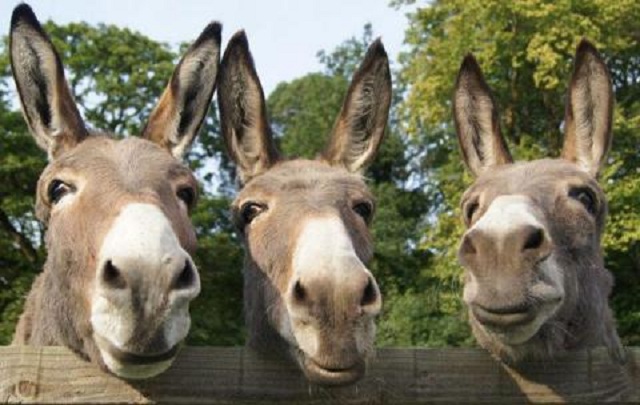
The Sunday News

Wilson Dakwa, Farming Reporter
ANIMAL welfare and rescue charity supporting project, The Donkey Sanctuary-Zimbabwe is working on ensuring improved animal husbandry by farmers.
The Donkey Sanctuary-Zimbabwe co-odinator, Mr Alfred Sihwa, said the organisation was on an outreach programme to impart to communal farmers the requisite knowledge on the treatment and welfare of donkeys. He said donkeys suffer the dual negative impact of low social status and poor management.
“Donkeys are subjected to the most brutal treatment compared to other domesticated animals, making them surely a beast of burden. As such we have embarked on an extensive campaign mostly in rural areas educating villagers about the importance of improving their welfare since they play a pivotal role in their livelihoods,” said Mr Sihwa.
The Donkey Sanctuary’s objective is to transform the quality of life for donkeys, mules and people worldwide through greater understanding, collaboration and support, and by promoting lasting, mutually life-enhancing relationships.
Donkeys in most parts of Zimbabwe are vital to the livelihood of their owners, carrying supplies and providing transportation and farming support. Zimbabwe has a donkey population of more than 150 000. Mr Sihwa said the organisation had come up with a number of implements aimed at ensuring that donkeys are unharmed while carrying out their day to day duties.
“Most draught animal power implements used by farmers are meant to be pulled on cattle, these include implements such as ploughs, harrows which are too heavy for donkeys. We have also come up with cloth pads to be strapped on the back of the donkey to protect it from bruises when carrying a load.
“We are also replacing traditional rubber and chains harnesses with polythene rope which is lighter. In the same vein we have also come up with double sling bag carriers which can be strapped on the donkey to ferry 20-litre buckets with contents,” said Mr Sihwa.
In most rural parts of Zimbabwe, especially in dry regions where agriculture is always difficult, donkeys are overworked and abused, forced to carry heavy loads over long distances with little or no rest, food or water.
“We also realised that we needed to design a scotch cart which is relatively light and can be pulled by a single donkey. Some people have only one donkey and due to this, they may fail to go to hospitals and run a number of errands because a scotch cart requires a minimum of two donkeys. Our scotch cart will come with donkey friendly harnesses that protect the animal from neck bruises and will enable to place the weight of load at the backbone of the donkey rather than on its neck since the strongest part of a donkey is its back,” he said.
As part of ensuring that the appreciation of donkeys’ welfare was fully embraced in communities, Donkey Sanctuary-Zimbabwe is working in collaboration with Lupane Youth Development Trust.
Donkey Sanctuary-Zimbabwe member Miss Charity Ndlovu said improvement of management practices, particularly treatment and control of hind legs or back sores by use of proper harnesses as well as feed supplementation are required to enable better performance of donkeys.
“We advise farmers to avoid bruising donkeys’ necks by padding harnesses with cloths or cotton. Some people ill-treat donkeys, for instance, they force them to drink water from unclean sources while other animals like cattle are given access to better water and this is detrimental to their health,” said Miss Ndlovu.
The ability of donkeys to thrive on poor quality minimally supplemented feeds has also made them popular especially in areas where the conditions are harsh and where feed shortages can seasonally become a critical problem.
Donkeys have been reported to survive better under drought conditions than any livestock species due to their small body size and low dry matter intake requirements, minimising their water and maintenance needs in arid and semi-arid areas, experts say.
@WilsonDakwa1



